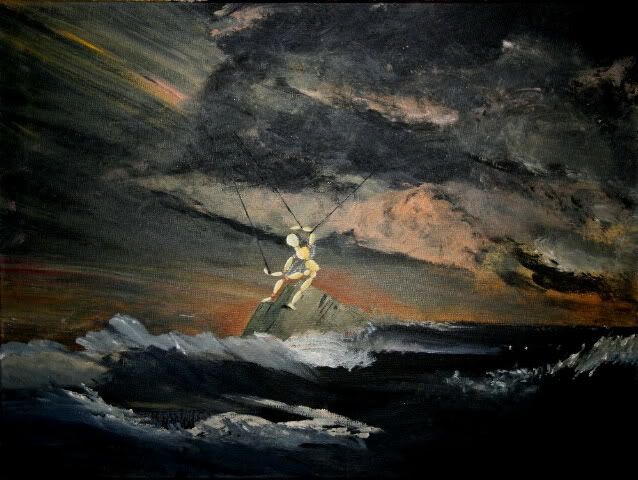“The intellect [as] a local effect of evolution, a flame, perhaps accidental,
which lights up the coming and going of living beings in the narrow
passage open to their action; an lo! forgetting what it has just told us,
it makes of this lantern glimmering in a tunnel a Sun which can
illuminate the world.” Henri Bergson
Revolutionary insights are bound to occur every few centuries. Evidence for this is clear since we stopped regarding earth as the center of the universe nor our solar system as the only existent planetary system; the “island universes” discovered in the early 20th century later became proof that we float inside a great vacuum filled with galaxies and our position is not in any way advantageous: we are merely an anthill in a vastly greater desert. Revelations of this sort change the root of all our understanding of the human being and his position in this strange universe. The above discoveries lead to a re-conceptualization of our place in the material plane. There are other revelations that force us to reevaluate our previous conceptions at a cognitive or intellectual level. Kant believed to have transformed philosophy with the same impact that Copernicus’ theory revolutionized astronomy. However, his philosophy as influential as it is, couldn’t produce the radical transformation its author had anticipated. In more recent times Heisenberg dramatically redefined the future of physics with his Uncertainty Principle, setting a perennial barrier to the accuracy of information we can obtain at the subatomic level. It will be safe to speculate that world-changing insights will continue to appear throughout history.
Because we are so immersed in our own opinions and hold with unswerving faith our convictions, it is no surprise that it becomes difficult for us to accept, much less digest, what new ideas are pointing at. The evolution of human knowledge is constantly pushing for wider horizons, breaking free from assumptions that were once crowned as truths but are in reality only provisional scaffolds that permit the growth of more profound insights. Such may be that case with our idolatry to matter; ever since science usurped almost every field of knowledge proclaiming that epistemological certainty is only possible through objective (that is, physically oriented) evidence. Steadily ever since Einstein tried to unify electromagnetism and gravity there has been an increasing wave of believers in a unified theory of reality; which in closer analysis is a pretension to explain the entire universe, or all that is, by physical mechanisms. It rests on an unproven assumption that can be summarized like this: because we are able to perceive the physical universe with our five senses and technical apparatuses, everything we perceive can be explained from that which we perceive. In simpler terms we are convinced that there exists nothing more than what we are able to perceive or deduct from our perception, and although this sounds like the plainest commonsense, we should carefully rephrase that assertion to: we can only discuss what we perceive. But we should not discard beforehand the possibility that this world, every phenomenon at the experiential level, may be simply a fragment of a vaster and greater reality. This does not imply that that greater universe which we cannot perceive should be a concern to science and philosophy but it simply comes as a warning to our proud advancement of knowledge. My case can be summed up in the following way:
If our awareness and intelligence arose out of earlier biological experiments, its persistence on this planet must only be explained by the advantages it has given to our species. Its function has been to assist the survival of our kind and not as we now presume, to solve the riddles of existence. Intelligence did not arise to survey all the scope of whatever exists but only to aid the organism in its survival with its immediate environment. This may be a total and insurmountable obstacle for the arrogance of science and philosophy; merely because there may be dimensions of reality we are not designed to perceive, causes that may influence the physical universe which are not strictly perceivable nor deducible from physical phenomena. This condition could set an experiential limitation to our knowledge –not unlike the uncertainty principle – forever and ever concealing absolute truth from our grasp and revealing us not as possessors of facts but merely as gatherers of illusions.

Return to Beyond Language





You must be logged in to post a comment.